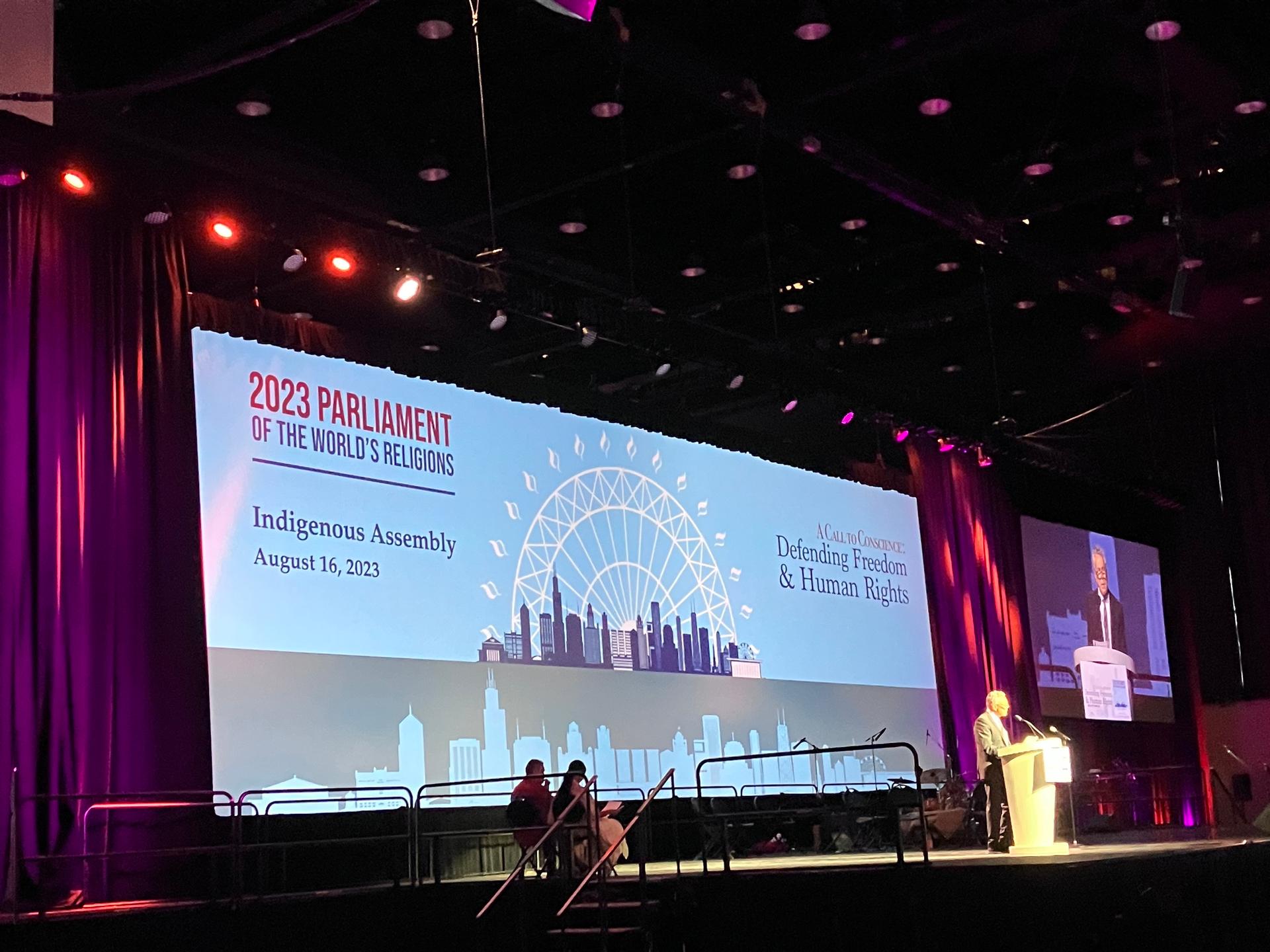The sounds of the divine rang out from everywhere this week at McCormick Place in Chicago as hundreds of thousands of religious and spiritual leaders convened for the 2023 Parliament of the World’s Religions.
It’s the largest and oldest interfaith gathering in the world. With rising religious extremism and nationalism around the world, from Brazil to India to the US, the focus of this year’s conference was authoritarianism.
Mohammad A. Siddiqi, an imam and educator with the World Council of Muslims for Interfaith Relations, was on hand in a room for people to learn more about Islam and to pray.
Prayer mats are arranged in one corner of the room, with a table set up for coffee and sweets to encourage conversation.
Siddiqi said it’s important to engage in conversations about authoritarianism because politicians often misuse religion to gain power.
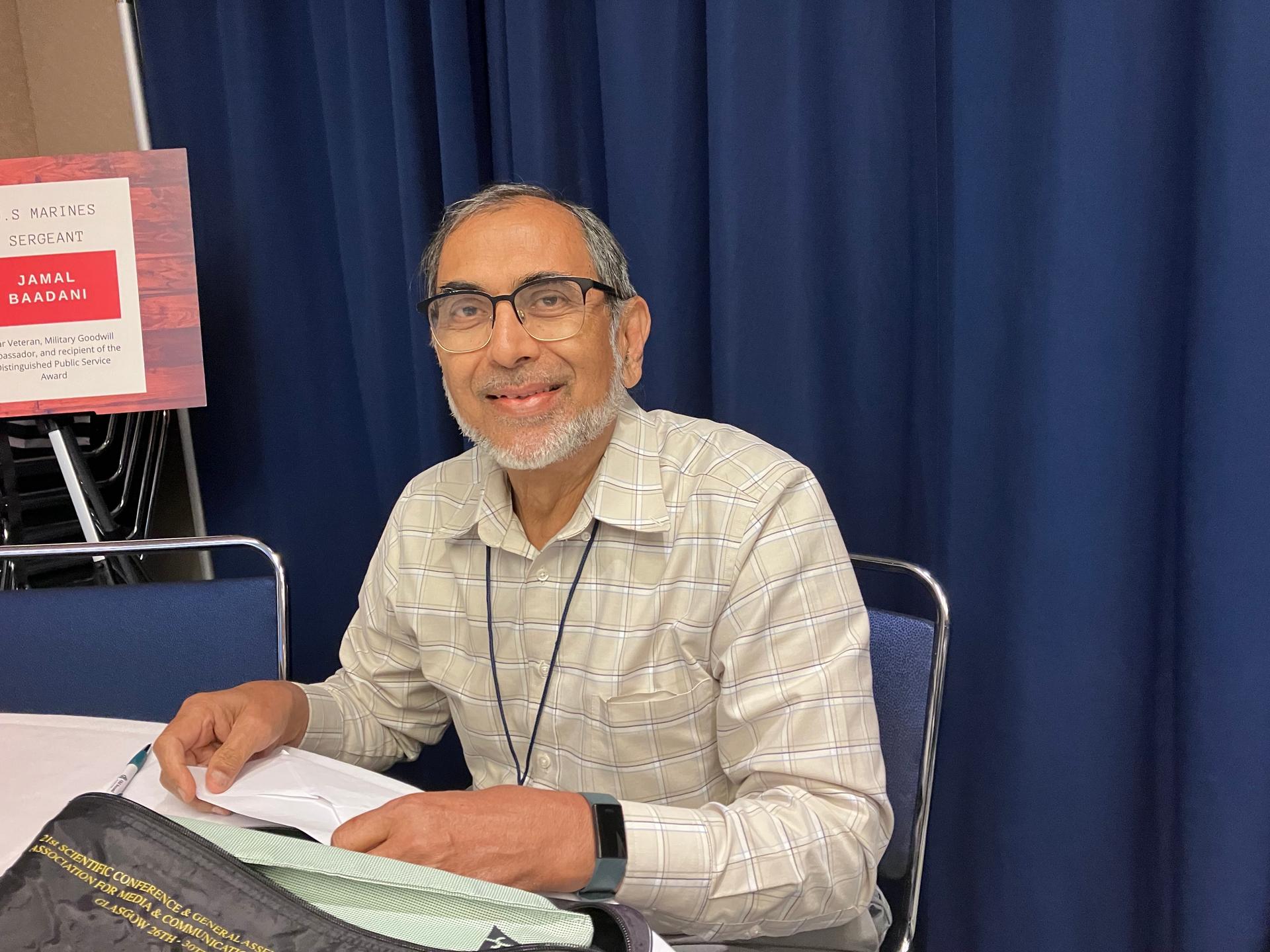
“The people may appear to be religious, like the right-wing or this or that, but they essentially don’t know what their religion is, whether they are among the Christians, or Muslims or Buddhists or any faith,” he said. “Because essentially, if you look at religious teachings, no religion teaches that a dictator can control an entire nation and oppress the people.”
Vijaylakshmi Nadar is a journalist with the Indian Times. Nadar, who participated in an afternoon panel on religious extremism, said that she has been tracking the rise of Hindu nationalism in India and in the United States.
She said that Hinduism inherently promotes inclusivity.
Swami Vivekananda delivered a groundbreaking speech at the very first Parliament of World Religions back in 1893 with this very message, she said, but India’s current government promotes Hindu-centric policies that marginalize Muslims and other religious groups.
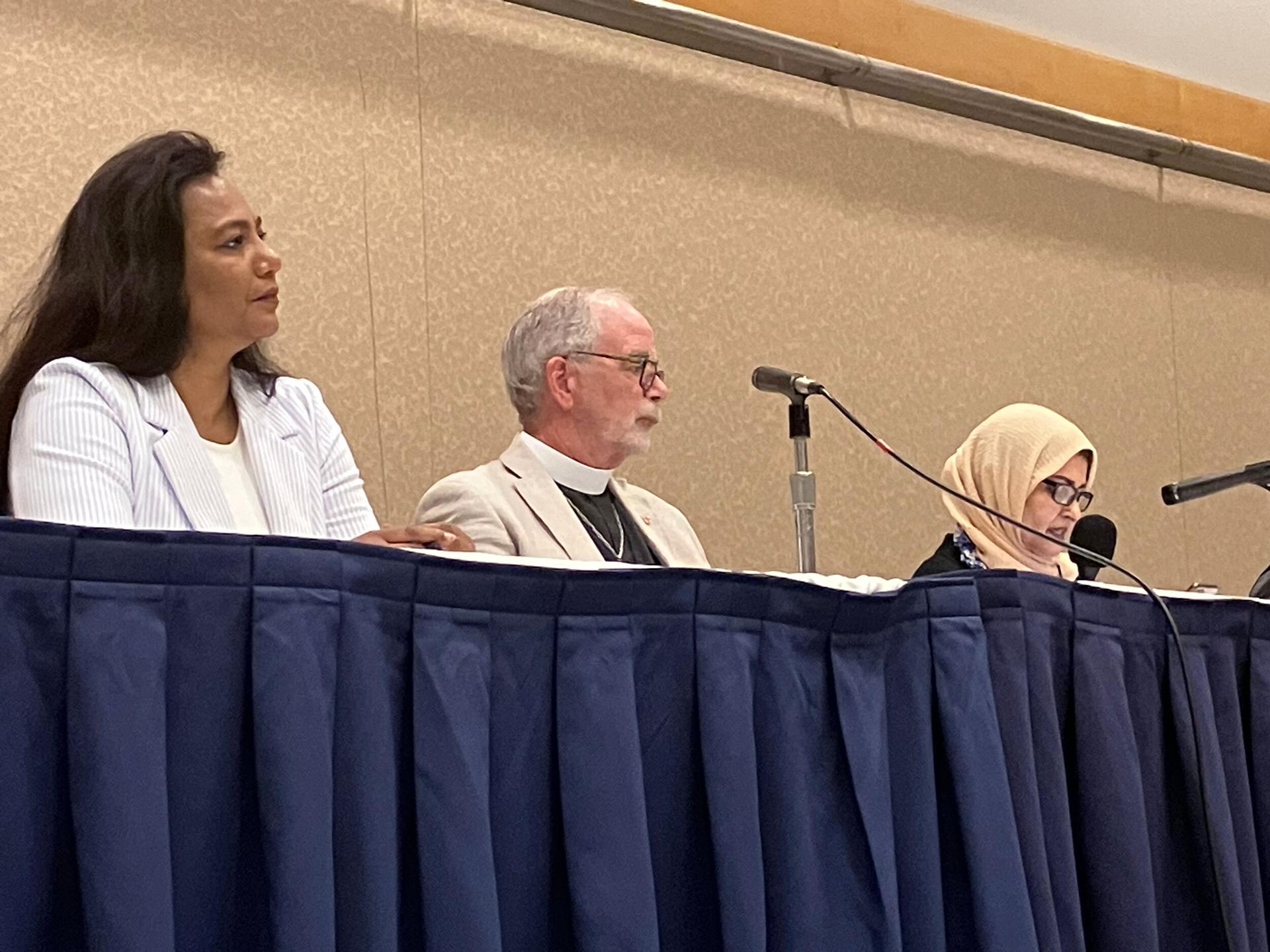
“The Indian Prime Minister Narendra Modi and the leader of BJP was right in saying the spirit of Swami Vivekananda speech has the potential to create a more just prosperous and inclusive planet,” she said. “And yet, he is at the very crux of becoming an extreme right-wing dictator powering Hindu fanaticism, threatening not just India, but the rest of the world as well.”
In fact, conference organizers reportedly removed Hindu leader Nivedita Bhide from the schedule this week after activists raised concerns over her links to Hindu nationalism, according to the Middle East Eye.
Rev. Mark Lukens, a retired pastor with the United Church of Christ Emmanuel, said that Christian nationalism poses similar threats in the US.
“In its aims and in its ideology, Christian nationalism is every bit as violent and dangerous as any other authoritarian movement.”
He said that Christian nationalism is a threat to Christianity itself, and that religious leaders must call this out “loudly and often.”
Jane Kryzanowski knows firsthand about the fight against authoritarianism — within the church itself. Kyrzanowski holds the title of bishop with the Roman Catholic Women Priests in Canada.
She said that she served for 15 years as a parish minister but couldn’t be ordained because she is a woman.
“The powers of patriarchy in the church and in the world have divested women of that basic identity. They say we are complementary. We are not equal,” she said. “Once you dispossess people of their identity, then you can take away things from them.”
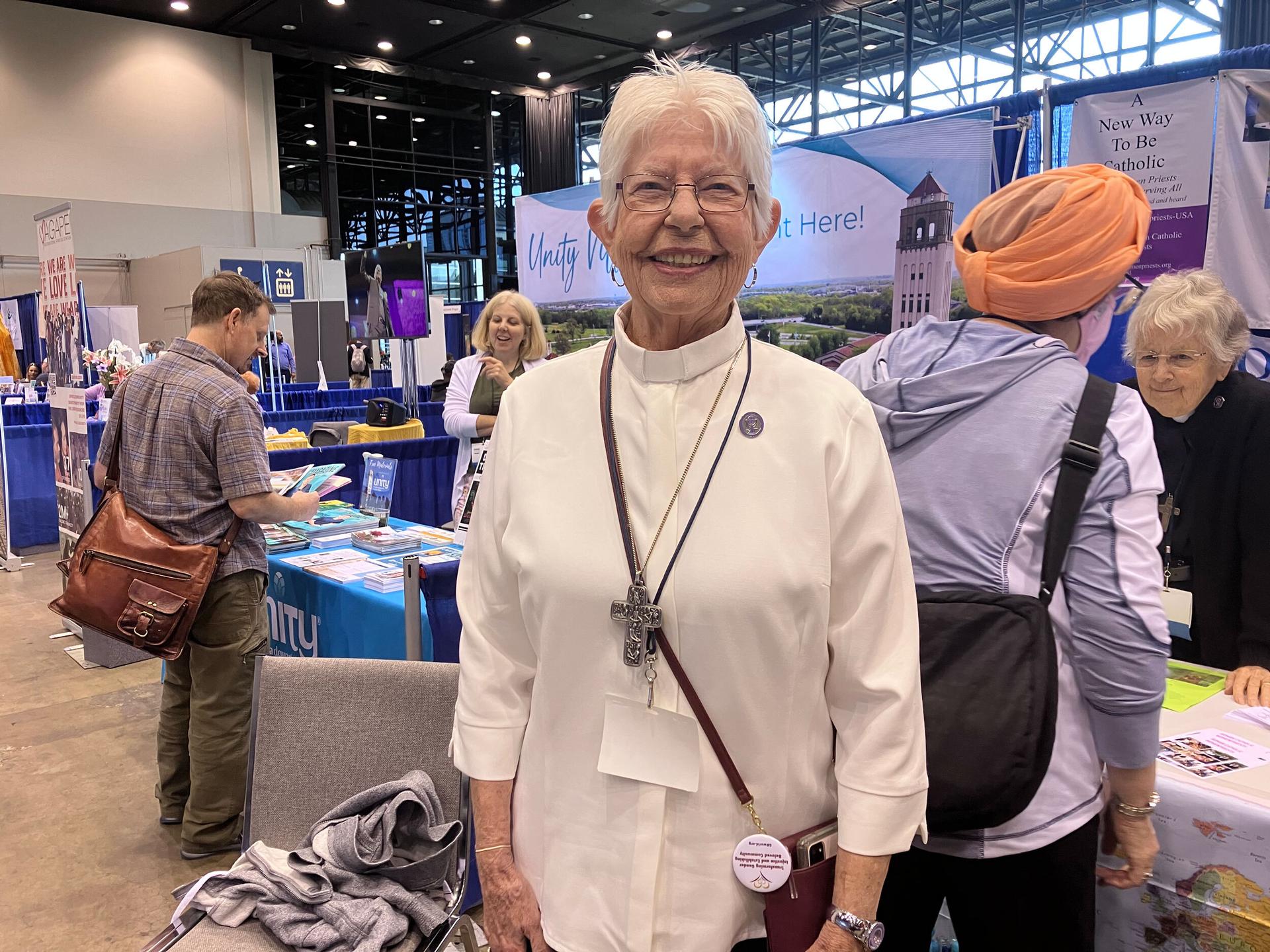
She was nearly retired when the women’s ordination movement gained momentum. At 60, she said that she felt called back to serve God.
“It came back to me in my time of retirement and the reenergizing power that has come to me by the power of the spirit and my grace of ordination has been to continue to to speak out about the injustice against women in the Roman Catholic Church through patriarchy, misogyny, and the denial of human rights, basic human rights, spiritual rights,” she said.
She and others at the conference agreed that countering authoritarianism requires coalition-building, continuous dialogue and a focus on service.
Under a large tent outside the conference hall, Sikhs held a daily langar — a free community kitchen that is considered an act of devotional service in the Sikh tradition.
“Life’s true business is serving food to humanity,” said Sikh volunteer Randeep Lall, who greeted newcomers as they entered the tent.
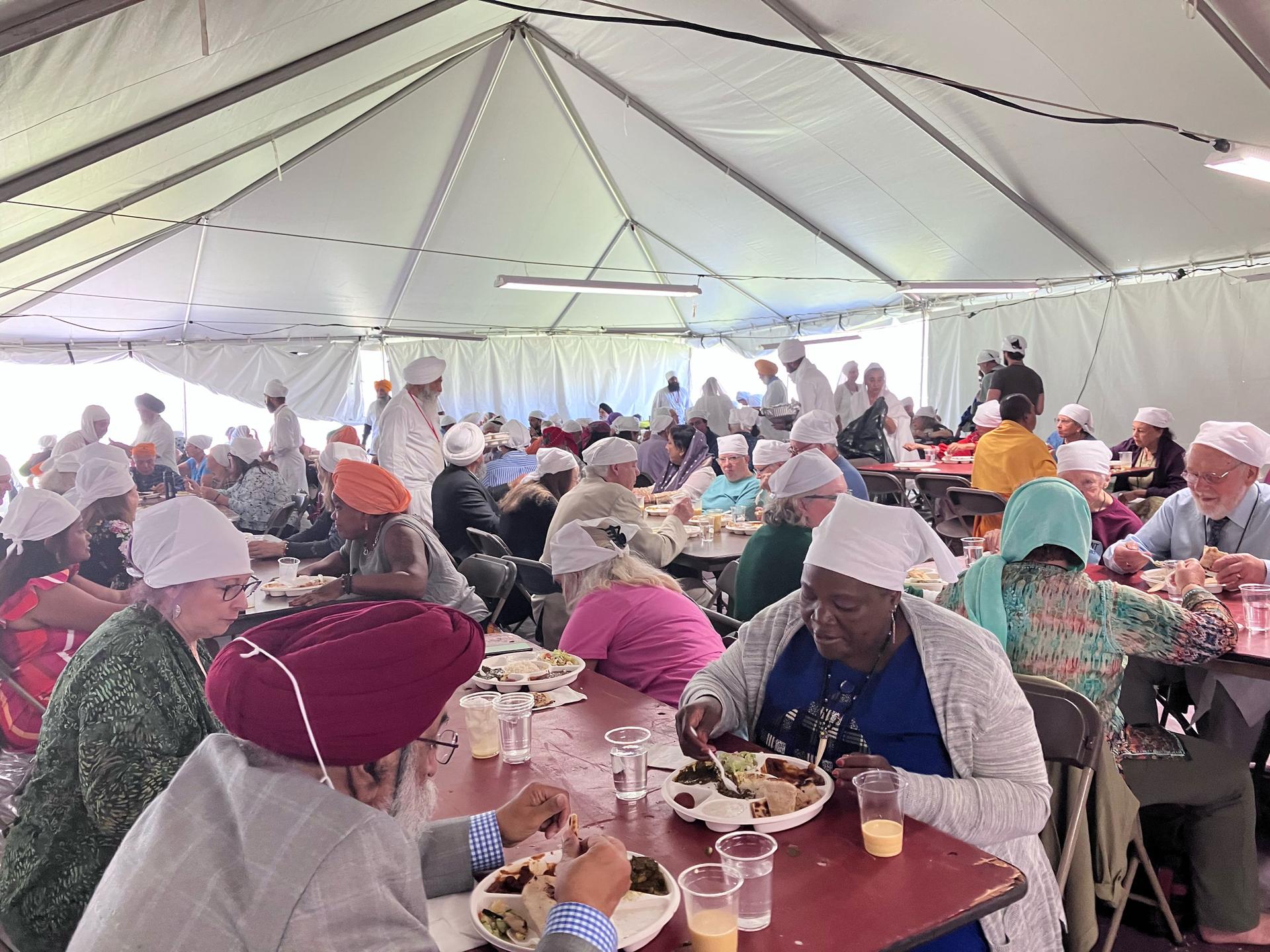
Sukhbir Singh is the main event organizer and representative of the Guru Nanak Nishkam Sewak Jatha, or GNNSJ, in the United Kingdom.
He said that Sikhs are intrinsically interfaith and stand against all forms of religious extremism.
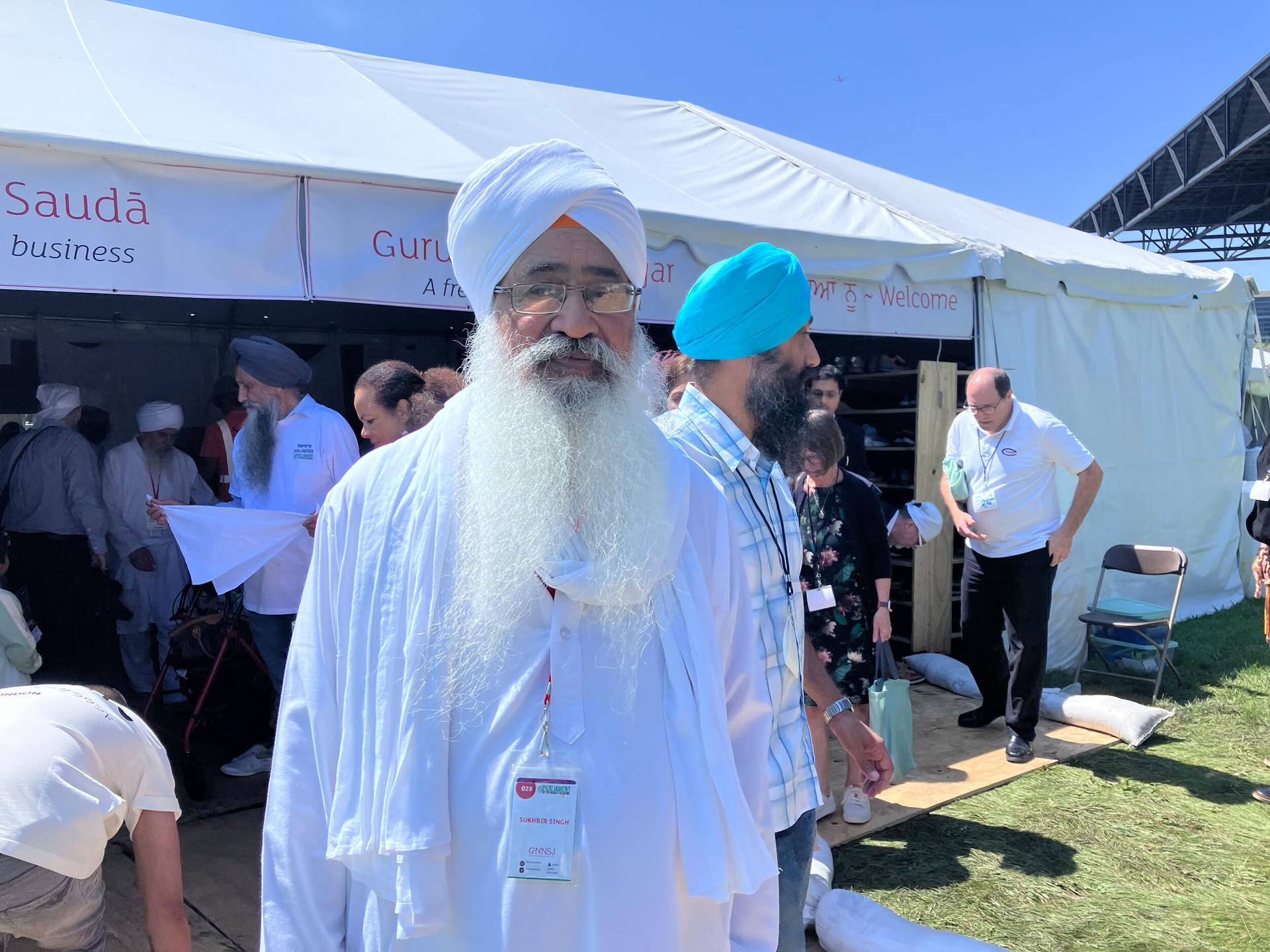
“Where does extremism begin from? It begins from the mind. Right? Then it takes shape and it becomes a physical act of violence or killing somebody,” he said. “So, what we’ve got to concentrate is on taming the mind right from the beginning.”
Children brought up with love and care, he said, will become very, very good citizens to the world.
The story you just read is accessible and free to all because thousands of listeners and readers contribute to our nonprofit newsroom. We go deep to bring you the human-centered international reporting that you know you can trust. To do this work and to do it well, we rely on the support of our listeners. If you appreciated our coverage this year, if there was a story that made you pause or a song that moved you, would you consider making a gift to sustain our work through 2024 and beyond?
